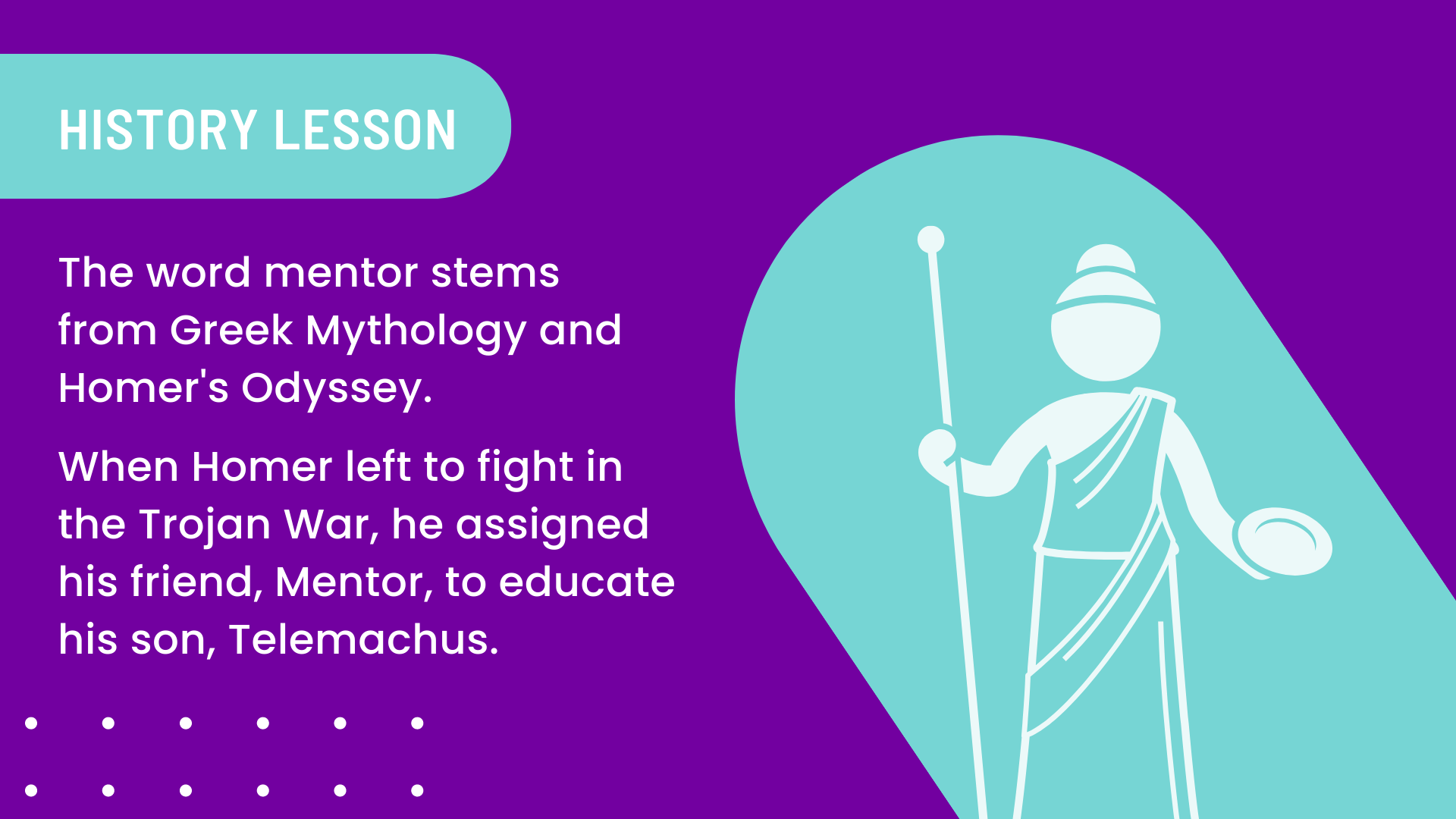How Nurses Can Benefit from Mentoring and Being Mentored

Did you know that mentorship and success are linked? Steve Jobs mentored Mark Zuckerberg, the mastermind behind Facebook. Michelle Robinson (Obama) mentored Barack Obama at a summer job in a law firm. Florence Nightingale mentored Rachel Williams, who founded a nursing school in 1877.
As you can see, mentorship is powerful. It eliminates the self-doubt that newbie nurses feel during their first year of work and assures continued expertise in specialty areas. However, mentorship is more than a few weeks of training and learning new skills—it’s a long-term commitment.
Mentorship vs. Preceptorship
When you accept a new job or position, you may hear the words mentorship and mentor used interchangeably with preceptorship and preceptor. While both relationships are based on principles of adult education and involve experiential, individual-focused learning, they’re actually different.
Mentorship
Mentoring is an intense, long-term relationship between mentors and mentees and covers professional and personal domains. A mentor is a coach, confidant, and role model who works one-on-one with a mentee to achieve various outcomes. In return, the mentee actively engages in learning, communicates concerns, and willingly accepts guidance. The relationship has no end date.
In nursing, mentoring is critical to developing new nurses and can play an essential role in advancing the quality of care in the United States. Experienced nurses can coach inexperienced nurses throughout their professional development, offering thoughtful feedback and support and emphasizing the importance of lifelong learning and continued leadership. Then, one day when those newbies become seasoned nurses, they can pay it forward and mentor the next generation.

Preceptorship
In contrast, the preceptor relationship has a beginning and end date. It is a professional teaching relationship for nurses entering a specialty position. The preceptor teaches, observes, and evaluates the demonstrated skills until the nurse has achieved the required competency. Preceptorship creates nurses who are proficient and adept at their jobs.
The Power of Mentorship
Do you think Mark Zuckerberg, Barack Obama, and Rachel Williams would have succeeded without being mentored? Do you see the potential that mentorship can have for you? Mentorship is a powerful tool. Here are some of the positive benefits of mentorship:
Better Retention and Hiring
As many as 31% of graduates change or leave their job within the first year. Studies show that mentorship improves staff retention, and new nurses are more apt to take a job if mentoring is part of the hiring agreement.
Self-Confidence Booster
Mentorship offers grads and nurses entering specialties a safe place to discuss their fears and areas of weakness. Mentors also applaud the mentee's success. When you dare to be transparent, you overcome vulnerability and become more self-confident.
Faster Problem-Solving
Mentees learn to think critically and problem-solve more quickly than nurses without a mentor. Why? Mentors challenge mentees to think over issues and navigate through possible solutions.
Higher Job Satisfaction
Mentees who receive career counseling can further their education and move on to advanced practice roles. Their job satisfaction will be higher than nurses who feel stuck or bored in their current positions.
Safeguarding Clinical Expertise
Mentorship guarantees that specialty areas will always have adequate staffing. Experienced staff come alongside and share their nursing expertise while smoothing the way into a more challenging position.

Benefits of Being a Mentee
As a mentee, you get to walk alongside someone who has journeyed ahead of you and can take you down a path that unlocks your hidden talents and propels you to achieve greatness.
Benefit from knowledge transfer: Mentees can tap into their mentor’s infinite wisdom and experience. What took their mentor months or years to acquire can be learned in a short period.
Learn intuition skills: Intuition usually comes through years of nursing. Mentors often tell stories of patients with unusual symptoms or sudden decline. Mentees who listen carefully will unconsciously integrate the skills of intuition based on the stories they've heard and processed.
Assimilate into the company culture: Mentors make it easy for mentees to adapt to an organization's culture. They receive a quick introduction to co-workers and other healthcare employees. They benefit from their mentor's friendships and learn the unit's lore. Mentees also profit from their mentor's knowledge of the building and outside grounds.
Develop self-awareness: Mentors may point out the mentee's strengths and weaknesses as the mentorship evolves and trust is established.
If you think being a mentor is a lopsided deal, it’s not. Mentors also benefit from mentorship.
Benefits of Being a Mentor
Substantial work goes into mentoring. It takes mental and emotional energy—and a lot of time. Is it worth it? You bet. Here are some of the benefits of being a mentor:
You share your knowledge: It's cliché, but what is the point of acquiring wisdom if you don't share it with someone that can benefit? Sharing your knowledge strengthens your mentee and the organization you work for.
You strengthen your skills: Mentoring bolsters your skillset. We often do procedures automatically but need to refer to a manual when asked to explain or demonstrate the skill to another. Mentoring keeps you competent and confident in your skillset.
You contribute to another person's success: When you offer career advice to your mentee, there's a certain satisfaction in watching them succeed. Sit back and enjoy a job well done.
5 Tips for Finding a Mentor
Do you know how to find a mentor if your place of work doesn't offer one? Here are a few tips to help you find a mentor who can take your nursing career to the next level:
Ask your manager if there's a mentorship program at your facility. If there isn't, why not suggest that they start one?
Approach an experienced nurse at work whom you respect. Ask them if they would consider entering a mentorship with you.
The American Nurses Association offers a mentoring program to its members. They match experienced nurses with new grads.
Do a Google search and find a nursing mentor online. Before you commit, check their prices and experience. See if their concept of mentorship matches the qualities of mentorship.
Some universities offer nurse mentoring courses. Do a Google search, then contact the professor to ask if one of their students would mentor you as part of their coursework.
Are you excited about the power of mentorship? Are you ready to be successful? Find a nurse mentor today and make it happen!
Alice Blackmore, MN, RN, Content Writer
Alice is a registered nurse and healthcare writer. She has more than 20 years of nursing experience, which ranges from labor and delivery to long-term care, with pediatrics, community nursing, and critical care sandwiched in the middle.